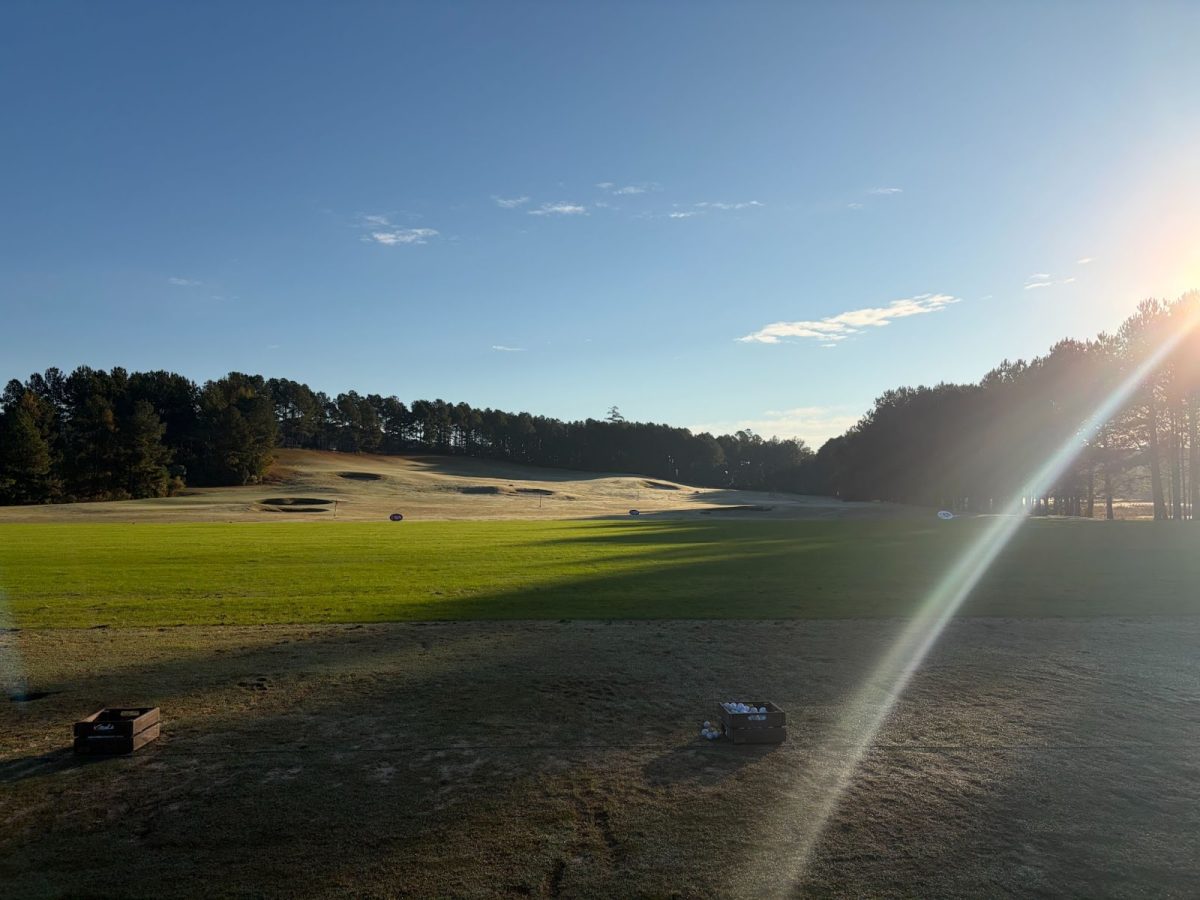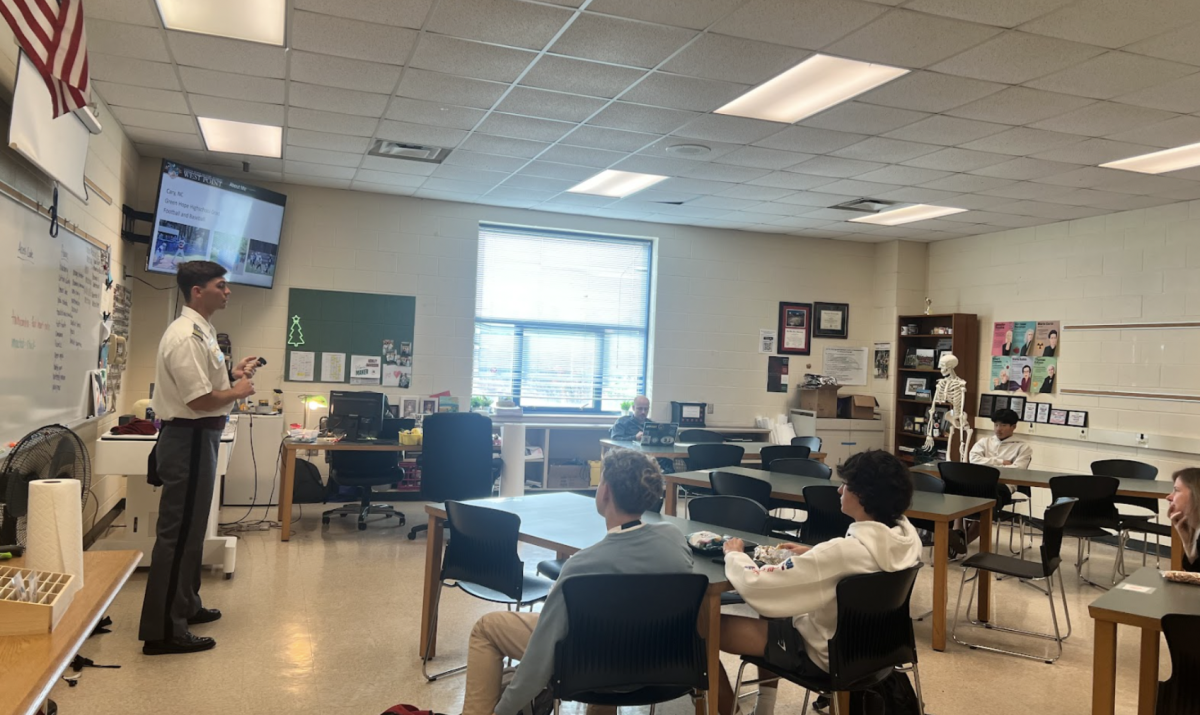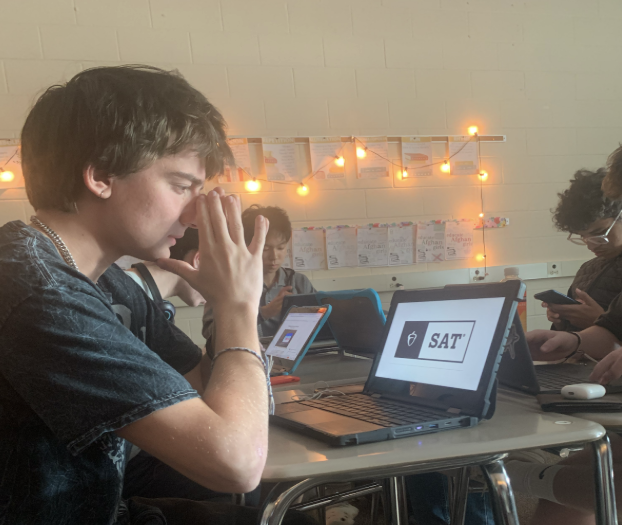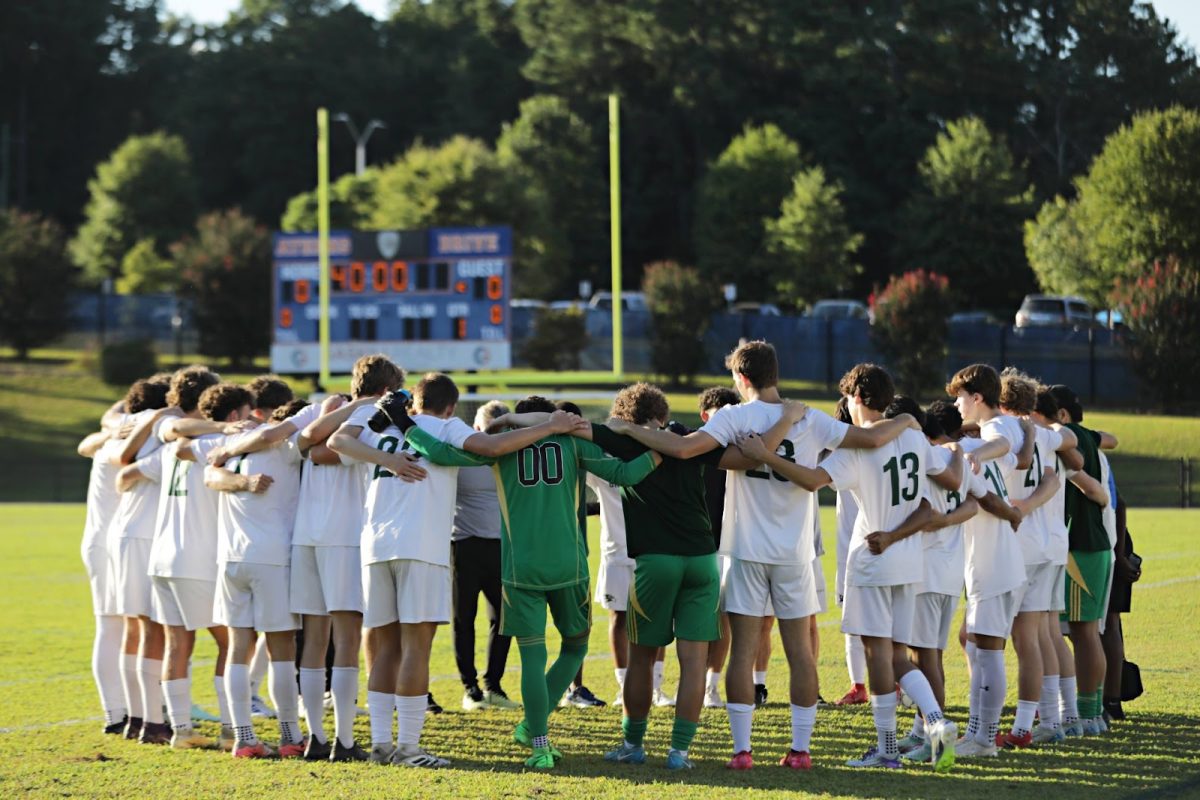Ben Hunt, a senior Cadet at the United States Military Academy (USMA) and a former Green Hope graduate, shared his experience at the West Point military school and gave students a perspective on this lesser-taken career path after graduation.
Hunt grew up in a military family, where service and sacrifice was tradition. At Green Hope, he excelled as a team player both academically and athletically. On choosing his current institution, he said, “I knew I didn’t necessarily want to go to a normal college or the same pathway like others.”
Moreover, he specified the reason he ultimately chose West Point, explaining the sense of community in the institution. “I love working with other people and the opportunity provided by West Point.” These factors combined made West Point the perfect fit for Hunt, offering a unique environment where teamwork and leadership are essential.
Daily routines often shape future success – and Hunt is non different. In discussing his routine at West Point, Hunt explained he prioritizes both his academics and physical health. “From 5:20 to 6:50 I wake up, freshen up and go for a workout. After which we have breakfast where everyone goes to the mess hall. After breakfast, we go to our classes, usually about three, before lunch and after finishing lunch there are 2 more classes and then the academic day ends. After academic day ends, it transitions into athletic time where you either go to sport or club practice.” Lastly, his day concludes after eating a buffet-style dinner at the mess.
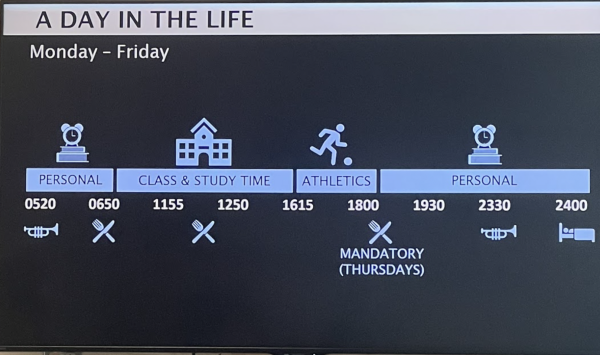
Explaining the physical location of the school, Hunt described what the West Point campus had to offer. “It is about an hour north of NYC. It has a ton of history and culture throughout the building. It is mainly an engineering school but has a ton of different degrees.” The school’s website adds that in addition to a Bachelors in Science, graduates are also named second lieutenants in the United States Army.
Hunt mentioned that attending West Point gave him more than an education – it allowed him to see the world from a global perspective. “You get a ton of opportunities that I don’t think any other college in America can offer you. I went to Israel, Poland, New York and in North Carolina working for different events, and all the trips are fully sponsored by the college itself,” he said.
With the opportunity, He also emphasized that there is a lot of sacrifice during the process. He said, “You are going to sacrifice a lot of things such as freetime, family time or going to parties like any other college student would do.”
Tuition, housing or work are essential in many students’ college searches. Recounting his experience on these subjects, Hunt said, “The motivation for me was the full scholarship that everyone gets.” In West Point every cadet gets free room & board, medical and dental insurance and monthly stipend, between $200-$525, which helps for the cadets to focus on their studies and responsibilities.
West Point’s model is centered on three core aspects: building up academics, physical strength and military potential. The academic component mirrors many institutions of similar-caliber, providing classes in a variety of subjects to engage future thinkers and innovators. To build cadets’ physical strength, students are required to take Physical Education classes such as boxing, swimming, gymnastics, MMA, golf and more. For these activities, cadets can be either Division I, club or intramural. Lastly, to shape future military leaders, all West Point attendees are required to attend summer training programs. For the first summer, students take Cadet Basic Training (CBT) for 6 weeks; on the second summer they take Cadet Field Training (CFT) for 4 weeks and for the third and fourth summer, graduates take Cadet Leadership Development Training, Cadet Troop Leader Training, leading CBT or another offering. Regardless of the pathway, flexibility within the specific program is given.
Plans after graduation are an essential part of college. Detailing about his plans Hunt shared, “ It’s a four year command during college. After college, you have to serve five years on active duty and if you want to get out after 5 years then you have to be in reserve for three years.”
West Point is highly selective and seeks high performing students. To apply to USMA at West Point, there are certain requirements which include being US citizen, between 17 and 22 years of age and free of child support or legal obligations. The applicant is nominated by a Representative, Senator or other service-related person, and submits scores on standardized tests – like the ACT or SAT – as well as the complete Candidate Fitness Assessment (CFA) and a medical exam.
Hunt’s journey from Green Hope to West Point sheds light on the opportunities and challenges from its academic or physical programs or to sacrifices or the rewards of military education.
































